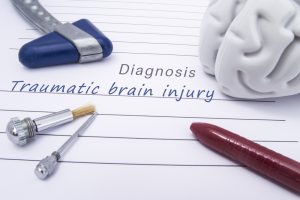
By Shidlovski at Shutterstock
Brain injuries can occur in a wide number of circumstances. However, like any bodily injury, no two brain injuries are exactly the same. In fact, while many people automatically think that an injury to their brain is classified as a Traumatic Brain Injury (TBI), the reality is that they could have suffered from an Acquired Brain Injury (ABI). TBI and ABI are two different injury classifications that will still require the support of caregivers throughout the rehabilitation journey.
What is an Acquired Brain Injury (ABI)?
An ABI refers to brain injuries that occur after birth. Many ABIs are caused by strokes, a lack of oxygen to the brain for a designated period of time, infections, or prolonged drug and alcohol abuse. It is important to note that degenerative brain ailments, such as Parkinson’s disease, or injuries caused during birth are not considered ABI. In this vein, ABI survivors will have a wide range of symptoms and care requirements that can range from severe to mild.
What is a Traumatic Brain Injury (TBI)?
A TBI is typically caused by a blow to the head; however, it can also be caused when the brain rapidly moves inside of the skull from incidents such as whiplash. According to the Centers for Disease Control (CDC), falls constitute 35 percent of TBI cases, motor vehicles account for 17 percent of cases, and repetitive trauma makes up 16 percent of cases. TBI survivors might experience a range of symptoms from mild to severe. These symptoms could include lightheadedness, blurred vision, headaches, impaired speech, memory loss, difficulty with cognitive functions, and, in some severe cases, death. It is important to note that no two people will experience exactly the same symptoms.
ABI vs. TBI: Understanding the Key Difference
As seen through the preceding sections, TBI is a subset of ABI. In other words, ABI accounts for all brain injuries, including traumatic and non-traumatic brain injuries. TBI only refers to those brain injuries that were the result of a traumatic experience. Both ABI and TBI diagnoses can require the support of caregivers as survivors seek to adjust to their new way of life and continue their rehabilitation journeys. Regardless of the diagnosis, caregivers should provide survivors with the hope, support, and resources that they need to recover and enjoy life to its fullest.
Finding Hope and Rehabilitation for Survivors
At TryMunity, we are dedicated to helping people from all walks of life who have been affected by an ABI or TBI. Our online community focuses on raising awareness, spreading hope, and providing the resources that survivors and caregivers need during this difficult time in life. Whether you have suffered from an ABI or TBI, or you are the caregiver to a survivor, we invite you to reach out to our community members, read our FAQs on brain injuries, and share your story. To discover the support and hope that you need after a brain injury, please contact a member of our community today.



